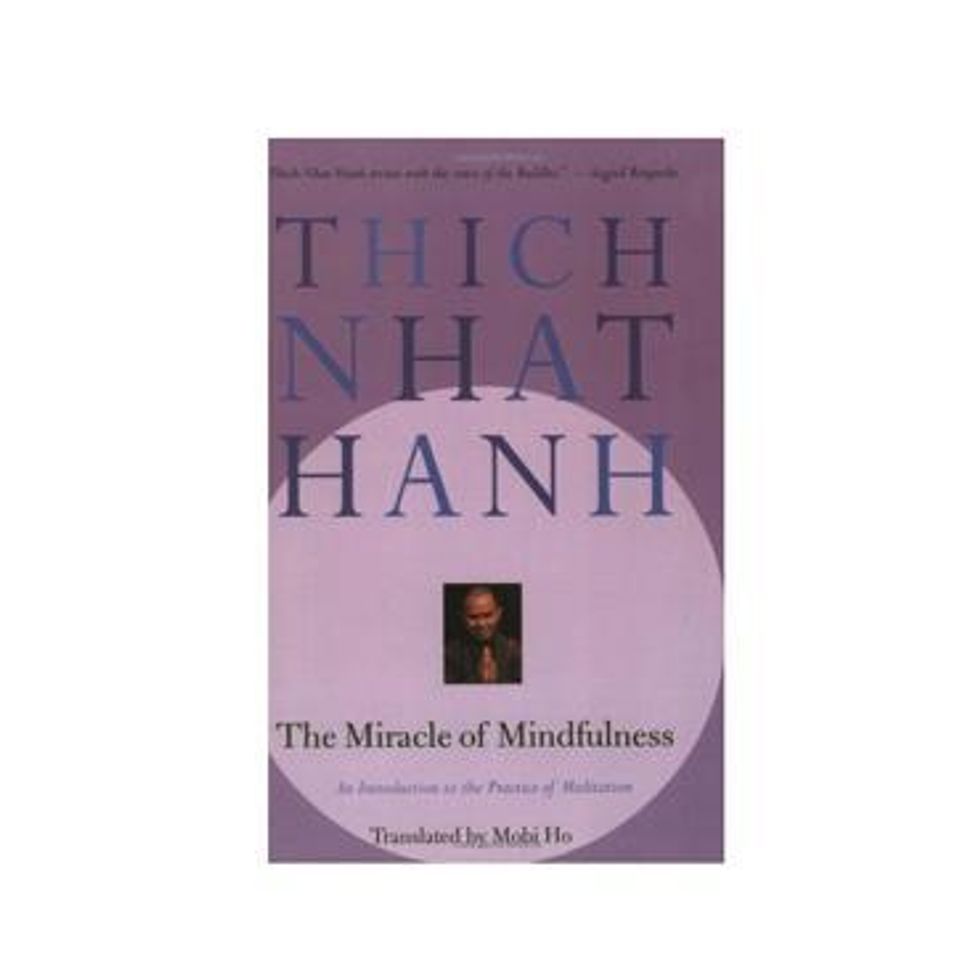How often does your mind wander during sex? You might wonder whether you're "doing it right" or whether the light is flattering. You might be thinking about tomorrow's plans or rehashing an event from today. You might wonder whether that noise is the furnace coming on or something to worry about. You might be musing about a topic you know you should have raised with your partner before you went to bed.
This kind of mental multitasking is more common that you might think. And as if experiencing orgasm weren't sometimes difficult enough, the last thing you need is your brain working on overload.
Mindfulness and meditation come up often in my conversations with patients. Practicing mindfulness has been one of the "recommended actions" women can take since the initial launch of MiddlesexMD. I've talked about it since on several occasions, including in an article reviewing research on "great sex." The number one component? "Being there."
Dr. Lori A. Brotto, clinical psychologist and sex researcher, has spent more than 15 years researching how to make meditation and mindfulness work in the bedroom. In an article titled, "Want to *Actually* Improve Your Sex Life? Try Mindfulness. Seriously," Brotto talks about the need to practice mindfulness in everything you do—every day.
We are programmed to think we need to multitask to be successful, when, in fact, we should be doing just the opposite. Brotto explains, "If you're constantly multitasking throughout your life and never fully present, it's going to be really hard to just do that during sexual activity. The brain has been hard-wired and it's going to find it very difficult to do that." Makes perfect sense.
When we multitask, we think we're getting so much done because we are "successfully" getting several things done at once. But, is that actually good for our brains? Not according to Brotto: "Research has shown that rapid multitasking is really bad for our brains in general. We might feel like we're accomplishing a lot by switching between tasks very quickly, but with each switch it's actually more taxing on our brains."
The same holds true for our sexual responses. If we're constantly thinking of everything else that is on our minds during sex (e.g., everything we should be doing instead of having sex), we can't really enjoy the "task" at hand. Even worse, if we're having negative thoughts ("Will I reach orgasm this time?" or "Is he satisfied?") when we're being intimate with our partner, we put a lot of pressure on ourselves—and in a particularly counterproductive way.
When we are under all this pressure, the part of the brain known as the amygdala is stimulated, releasing cortisol, also known as the stress hormone. Our body goes into fight-or-flight mode, causing our emotions to get totally out of control.
Brotto talks about fight or flight and how it can take away from the sexual experience: "That system is actually the opposite to the sexual arousal system. So, the sexual arousal system is parasympathetic and when we go to that judgmental, stressful, worrisome place, the sympathetic nervous system is activated."
When we are able to rid ourselves of all the negative thoughts going around in our brain, we open ourselves up for other feelings—feelings we might even know we had. If you can stop worrying about your own performance or if your partner is satisfied (or whether you remembered to turn off the oven), you can be more present and able to feel sensations. This is where mindfulness can make a difference—it helps us be totally present in the moment and really enjoy what is happening to our bodies.
Learn how to Take 10 for Mindfulness.
One of the best ways to stimulate mindfulness is yoga. We all know yoga helps improve our flexibility and balance, but it also involves a meditative component. The breathwork in yoga "stimulates the parasympathetic nervous system and causes the body to relax and the blood pressure to drop," says Maureen Ryan, sex therapist and nurse practitioner. Yoga exercises the body and calms the mind—exactly what we need if we want to be fully involved when being intimate with our partner.
Meditation in general has several benefits, including giving you energy, keeping you centered, and decreasing stress. It's difficult to have sex if you're too tired or stressed from a long day at work.
We know mindfulness and meditation have numerous benefits in daily life and in the bedroom, so why not give it a try? You really have nothing to lose and everything to gain.
Start by reading the discussions here at MiddlesexMD on mindfulness and meditation. And if you'd like a resource you can curl up with, we highly recommend Thich Nhat Hanh's book, The Miracle of Mindfulness.
Barb DePree, MD, has been a gynecologist for 30 years, specializing in menopause care for the past 10. Dr. DePree was named the Certified Menopause Practitioner of the Year in 2013 by the North American Menopause Society. The award particularly recognized the outreach, communication and education she does through MiddlesexMD, a website she founded and where this blog first appeared. She also is director of the Women's Midlife Services at Holland Hospital, Holland, Michigan.








